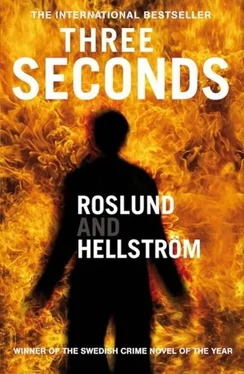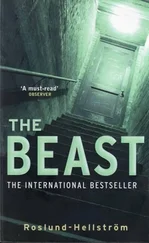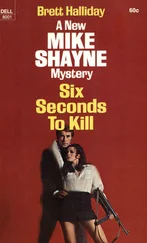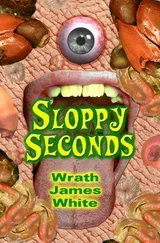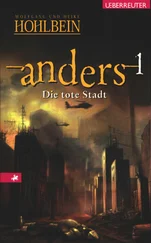"Göransson."
That bloody voice.
"I want to talk to you, Göransson."
He had never liked it.
"Morning, Ewert."
Ewert Grens limped more noticeably now-either that or the corridor walls just amplified the hard sound of a healthy leg meeting a concrete floor.
"The firearms register."
Whatever it is that takes up so much room.
Fredrik Göransson avoided the heavy hands that fumbled for plastic cups and the coffee machine buttons beside him.
There's no room here again.
"You're standing too close."
"I'm not going to move again."
"If you want an answer, you're going to have to."
Ewert Grens stayed where he was.
"721018-0010. Three Radom pistols and four hunting rifles." The name that was still blinking on his screen.
"Yes, what about it?"
"I want to know how someone with his criminal record was granted a firearms license for work."
"I'm not sure what you're getting at."
"Assaulting a police officer. Attempted murder."
The plastic cup was full. Grens tasted the warm liquid, gave a satisfied nod and pressed the button for another.
"I don't get it, Göransson."
I get it, Grens.
He has a firearms license because he is not violent and is not a classified psychopath and does not need to be branded dangerous and has not been convicted of attempted murder.
Because the database entries that you've seen are a tool, fake.
"I'll look into it. If it's important."
Grens tested the second cup, looked just as happy and started to walk away, slowly.
"It is important. I want to know who issued that license. And why." It was me.
"I'll do what I can."
"I need it today. He's in for questioning first thing tomorrow morning." Chief Superintendent Göransson stood where he was under the flickering, whirring light as Grens walked away.
He shouted after the detective who had demanded answers.
"And the others?"
Grens stopped without turning round.
"Which others?"
"You had three names when you came to me yesterday."
"I'm dealing with those two today. This bastard is doing time already, so I know where I've got him, he'll be there tomorrow too."
Too close.
The ungainly body carrying a plastic cup in each hand limped off down the corridor and disappeared into an office.
Grens had been standing too close.
The toilet bowl was yellow from piss and the sink was full of wet tobacco and cigarette butts with no filter. The unscented detergent didn't even remove the top layer of dirt. He scrubbed for a long time with the brush and then with the scouring cloth, but they only slid over the worn porcelain surface. The toilet outside the door to the workshop was small and used by people who pissed outside the bowl in the short breaks they could get from the work they hated, a couple of minutes' respite from a punishment that was never clearer than when you were standing by a machine that drilled small holes for screws at the bottom of a lamppost hatch.
Piet Hoffmann went into the big room and greeted the same faces that he had the day before. He wiped over all the workbenches and shelves, washed the floor around the diesel barrel, emptied the bins, cleaned the large window that faced the church. Every now and then he'd glance over at the small office behind the glass wall and the two guards sitting there. He was waiting for them to get up and do their round of the workshop, which they had to do every half an hour.
"Is it you?"
He was big, hair in a long ponytail and a beard that made him look much older than his-Hoffmann guessed-twenty years.
"Yes."
He was working on the press, big hands holding metal that would be shaped into rectangular hatches-he could do a couple a minute if he didn't stop to look out the window.
"One g. For today. Every day."
This afternoon."
"Block H."
"We've got a man there."
"Michal?"
"Yes. You get it off him and pay him."
Hoffmann took his time. He wiped and scrubbed for an hour or more-it was a good way of getting to know the room and working out the distance from the window to the pillars and noting the position of all the surveillance cameras, to know more than everyone else, to be able to control every situation, the difference between life and death. The guards got up from their chairs and left the office and he hurried in with his cart to wipe over an empty desk and an equally empty can, careful to stand with his back to the glass wall and workshop the whole time. He only needed a couple of seconds, the razorblade was in his pocket and he switched it to the top drawer of the desk in an empty space between the pens and paperclips. A new bag in the can, still with his back to the glass, then he went out, took the elevator down to the passage with four locked doors to the administration block.
His body felt itchy and his suit was too tight over the chest. He loosened his tie a touch and ran even faster down the corridor and through the door into the larger building that had swallowed the surrounding buildings and now constituted the greater part of a block dedicated to police operations.
Fredrik Göransson had sweat on his cheeks, neck, back.
Piet Hoffmann. Paula.
Ewert Grens was on his way there, to Aspsås prison, had already booked the time and room. He would only have to question Hoffmann for a couple of minutes, no more, before Hoffmann would lean over the table, ask Grens to switch off the recorder and then burst out laughing and explain that you can go home now, we're working for the same side, for Christ's sake, I'm here working for one of your colleagues and it was your bosses, in that room in the Government Offices, who chose to overlook an execution in a flat in the center so that I could carry on my infiltration here, on the inside.
Göransson stepped out from the lift and into a room without knocking on the door and without any consideration to the hand that was holding a telephone receiver and the arm than waved that he should wait outside until the call was finished. He sank down into one of the sofas and tugged absent mindedly at his increasingly red throat. The national police commissioner asked if he could call the person on the other end of the phone back and finished the conversation, looking at a person who was a stranger to him.
"Ewert Grens."
His forehead was moist and his eyes were darting around.
The national police commissioner got up from the desk and walked over to a cart filled with big glasses and small bottles of mineral water. He opened one and poured it over two ice cubes, hoping that it would be sufficiently cool to calm the man down.
"He's on his way there. He's going to question him. It's not good… it's… we have to burn him."
"Fredrik?"
"We have to-"
"Fredrik, look at me. Exactly what are you talking about?"
"Grens. He's going to question Hoffmann tomorrow. At the prison, in one of the visiting rooms."
"Here. Take the glass. Have some more to drink."
"Don't you understand? We have to burn him."
There were people at every desk in the administration block. He started with the narrow corridor outside, cleaned and scrubbed it until the gray linoleum almost sparkled. Then he waited until one at a time they signaled that he could come in and empty the can and dust the shelves and desk. The rooms were small and anonymous and all looked out over the prison yard. He saw groups of prisoners he didn't know out there, cigarettes in hand as they sat down in the sun to daydream, some with a football on their lap, a couple walking around the track alongside the inner wall. Only one door was shut and he passed it at regular intervals, hoping that it would be open enough for him to look in, and a couple of hours later, it was the only room that remained.
Читать дальше
